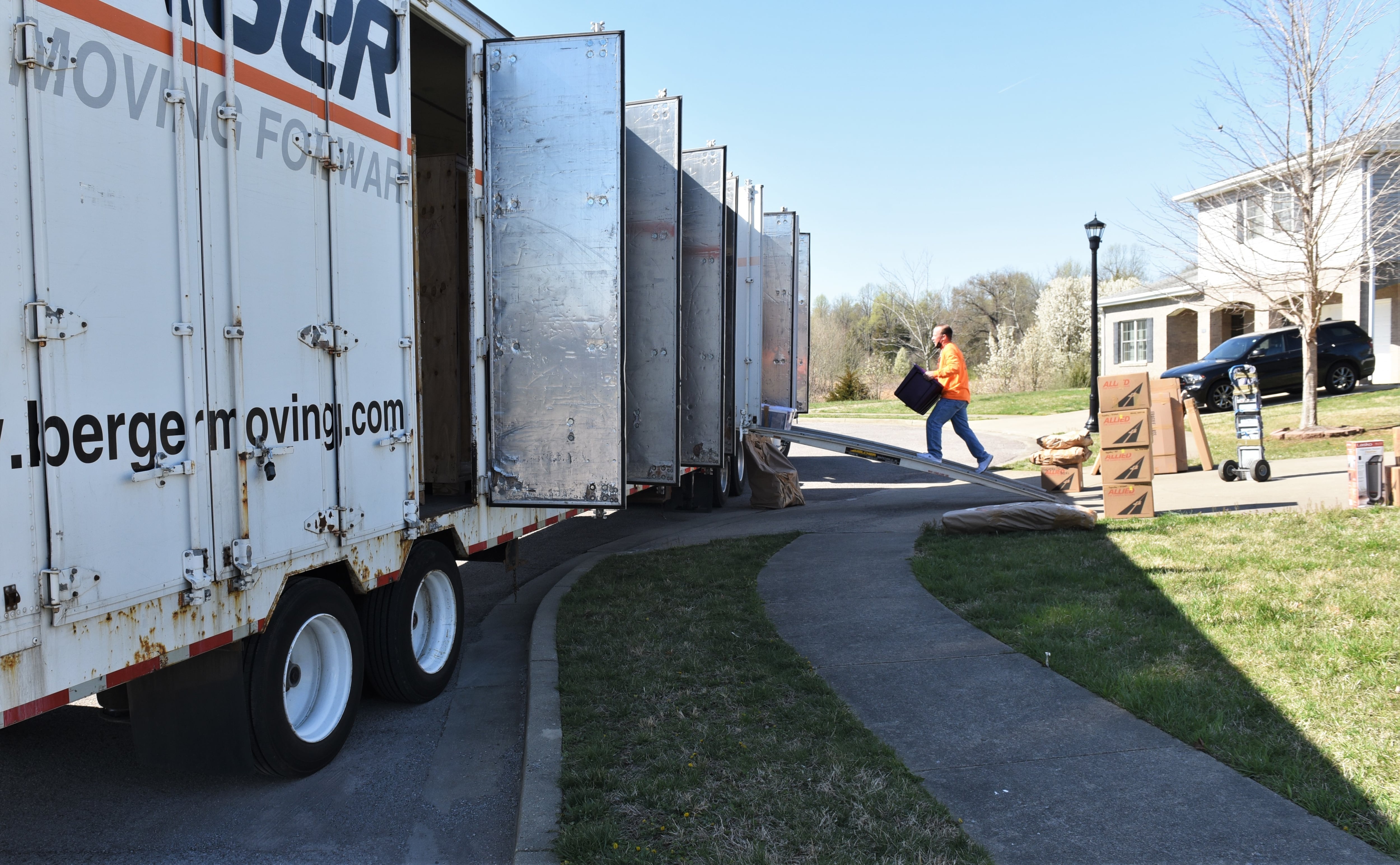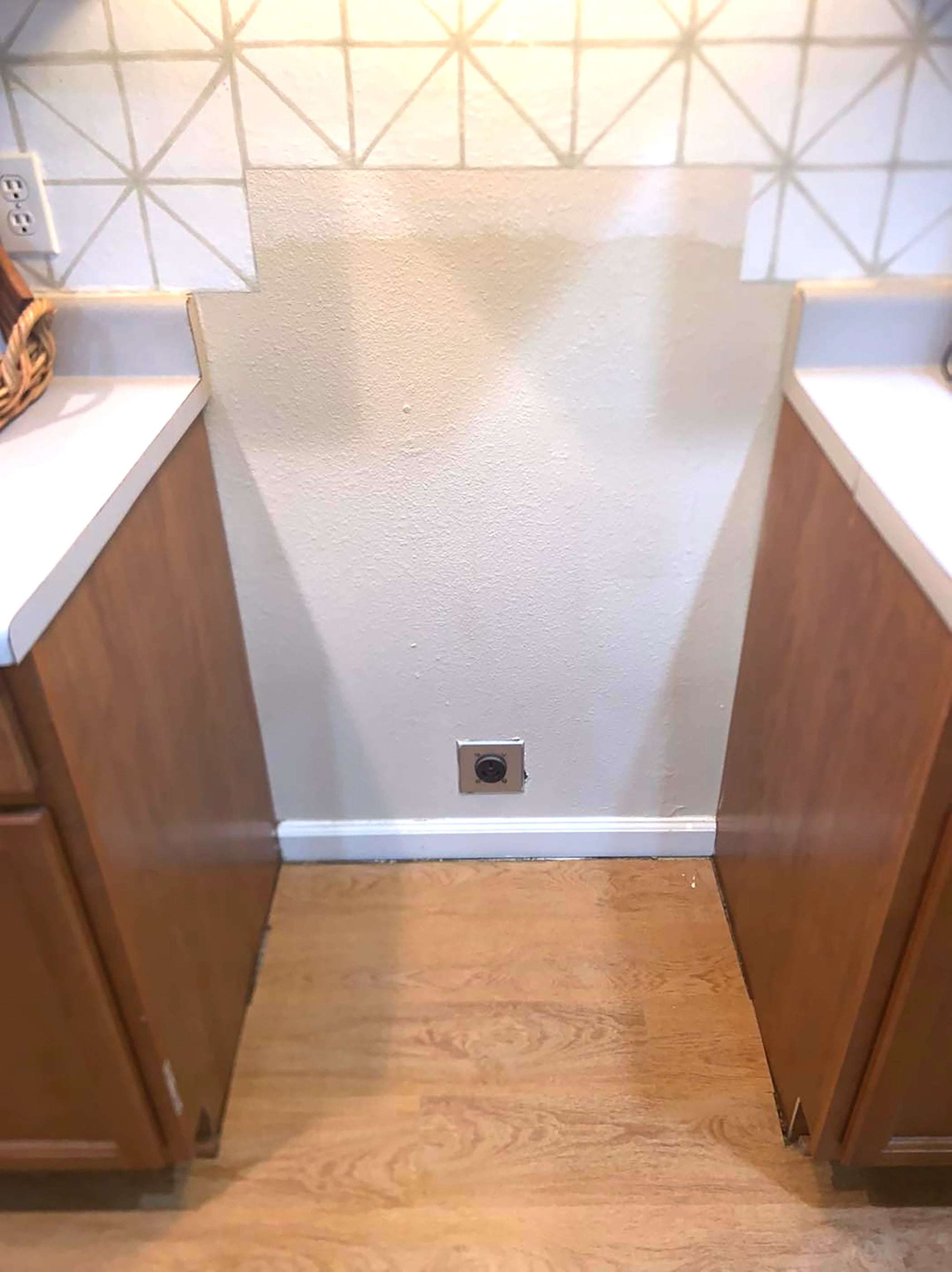There’s a lot to keep track of when you’re moving to a new military base. Just ask the family whose pet python got packed into a couch.
“A lady called and said they hadn’t found their yellow python. They didn’t want to concern anyone, she said, but it may have gotten in the couch that was packed up days ago,” said Brittany Brooks, vice president of Conser Group, a moving company based in Florida.

When the truck’s doors opened, animal control was at the ready. And indeed, there was the python, still alive and sealed into the couch by a thick layer of paper and plastic wrap.
While not every military family owns a snake, the anecdote highlights an important point for those making a permanent change of station move this year: Communication is key.
As you start arranging an upcoming move, talk to your moving company about your specific needs, any extenuating circumstances, pets, schedules and more. The more information, the better — even if you think it’s unimportant, Brooks said.
“Share it with us. We’ll decipher what’s need-to-know,” Brooks said in an interview with Military Times about this year’s moving season. “Having that proactive, organized conversation from the beginning is really crucial.”
Organization and planning are at the core of a successful relocation for troops and moving companies alike. Movers are now preparing to tackle peak PCS season, which runs from May 15 to Aug. 31 each year.

“We are doing everything we can from a resource perspective,” Brooks said. “Many of us are currently in hiring stages, in training stages with our crews, fine-tuning our equipment [and] making sure we’ve got the materials pre-ordered and ready to go.”
“When the bookings start to flow through for the military side, I think we’ll find that capacity is ready,” Brooks said in March.
Historically, more than 120,000 shipments — about 40% of the annual total for Defense Department’s household goods program — are moved during peak season, according to officials with U.S. Transportation Command, the organization in charge of shipping troops’ belongings around the world. In 2022, for example, the military logged nearly 303,000 household goods shipments.
“We are anticipating similar numbers for this year,” officials told Military Times in an email.
Shipments don’t equal the number of moves because some service members send out multiple shipments over the course of a single PCS.
Industry’s capacity to facilitate those moves in 2024 — such as the number of available trucks and drivers, and workers to pack and unpack everything from clothing to cars — looks similar to 2023, said Dan Bradley, vice president for government and military relations at the International Association of Movers, which represents about 2,000 companies in 170 countries.

“The private and corporate markets are still slower, so that competition is probably down right now for resources” such as drivers and equipment, said Bradley, a retired Air Force lieutenant colonel. “With those other markets being down, I think people are generally hungry for shipments, so they’re looking forward to peak season, and looking forward to getting shipments started.”
U.S. Transportation Command, for its part, has tried to improve the moving process for troops and their families. For instance, the command aims to cap the number of moves at 9,000 per week during peak season to avoid overloading the moving industry and allowing companies to better plan for the summer demand.
TRANSCOM has also stressed to the moving industry the importance of communicating with their entire supply chain and military customers, only taking on shipments they can safely handle, and proactively reaching out to customers when things don’t go according to plan. A service member’s local transportation office can also help set clear expectations about the moving process to help families prepare.
Many of the military branches have started offering more flexibility around when troops must report to their new duty stations. A service member’s current chain of command can often work with the unit they’ll join at the new location to smooth out any delays in arrival, according to TRANSCOM.
TRANSCOM is in the midst of implementing a new contract aimed at fixing many of the longstanding problems that have plagued service members when shipping household goods, like pickup delays, lost and broken belongings, difficulties with filing claims and more.
This spring, the command will start moving household goods under a single manager for a limited number of troops at five locations as part of the new contract. About 99% of service members making a move this peak season will remain under the current system.
RELATED

Secrets to successful military moves
For military families, successful moves take weeks of planning and organizing.
The common element movers see when successfully shipping household goods is organization, Conser Group’s Brooks said.
Culling items to discard, donate or sell will help make a shipment lighter, especially for those who are nearing the authorized weight limit. Aside from the physical aspect of moving your belongings, finding housing, new schools and a myriad of other needs are a big part of the process, too, not to mention spouse employment.
Since spouses take on much of the burden of preparing for a move, “we need to make sure we’re as easy to do business with as possible,” Brooks said. That includes flagging resources like DOD’s new pet PCS travel reimbursement, which offers troops up to $2,000 to move a dog or cat to or from overseas; or $550 if moving within the lower 48 states.
TRANSCOM recommends service members check out the PCS resources and tools available on Military OneSource, which covers dozens of tips on everything from preparing the home and belongings before the moving crew arrives, to what to do in case of loss or damage to your property.

If military customers have questions or concerns about shipping personal property, they should call their local transportation office. Phone numbers are available via the Military OneSource installations locator.
Brooks recommends putting together a binder, whether physical or electronic, with documents related to the move, relevant contact information and TRANSCOM resources.
PCS tips and tricks
- When contacted by the moving company assigned to your move, ask whether that person will be your point of contact through the pre-move survey, packing, loading, delivery and claims, if needed. Ask if you can call or text with questions.
- Talk to that representative up front, before the move, about your expectations at delivery. You’re entitled to request that the company fully unpack your belongings at the destination, but let them know in advance. “If it’s a large enough shipment, we may need to proactively schedule a second day to come out and help reassemble the rest of the furniture and take away boxes,” Brooks said.
- Collect medications and personal documents for each family member; packed suitcases; valuables such as jewelry; and other important items, such as purses, wallets, credit cards, cash, checks, pet paperwork and school information. Carry them with you; don’t ship them. Set them aside in your locked vehicle or a room marked “Do not pack” before the movers arrive. And don’t forget to keep iPads and other items handy to entertain children during the trip.
- If you’re moving within the continental United States and will have your vehicle, pack items you’ll need when you first arrive, such as diapers, toilet paper, hand soap and cleaning supplies. Even if you expect a door-to-door move, pack some sheets, towels, an air mattress and other items, in case of delays.
- Service members can move up to 2,000 pounds of professional gear that won’t be counted toward your weight limit. Spouses can move up to 500 pounds of professional gear. Separate that and let the movers know.
- Empty the trash cans before the movers get there — and don’t forget trash in the nursery, bathrooms and garage.
- Make sure dishes and laundry are washed and dried ahead of time, and removed from the dishwasher and the dryer.
- If possible, make arrangements for child care for young children on packing and loading days. Some organizations, such as the Air Force Aid Society, will pay for some child care for PCSing families.
- Keep your pets separate from the rest of the household goods in a room with a sign on the door that reads, “Don’t enter. Pets inside.” Even if a pet is friendly, you don’t know how it will react when they see strangers in the house. Cats may jump into boxes when they’re frightened. “We’ve had cats pop out of shipments in our warehouse before,” Brooks said.
- Pull furniture away from the wall a week or two before the move, to let the back of the furniture air out. Appliances should be unplugged and aired out beforehand, too.
- If you clean your rugs and upholstered furniture, give them plenty of time to dry. Moisture is a recipe for mold.
- When the crew arrives to start packing, find out who’s in charge before anything happens and walk them through any special instructions. “If a family says, ‘We’ve got two kids and a cat and they’re going to be here,’ … we can at least make sure we’re prepared when we walk in,” Brooks said.
- Drivers may try to make the move more fun for children, like encouraging them to decorate boxes. “I love the drivers who bring the crayons and stickers,” Brooks said. “The kids get excited when they see their boxes at the new destination.”
- Always contact your local transportation or household goods office if something goes wrong and you can’t resolve it with the moving company.

DIY moves
If you’d rather handle a move on your own, multiple avenues to do so are available. Troops and their families can rent portable moving and storage containers, as well as trucks or trailers; hire a moving company; use their own vehicles; or ship boxes through a small package carrier such as the U.S. Postal Service, FedEx or UPS.
The incentive to move on your own, in part or in full, is the money: You are allowed to receive 100% of the cost the government would have paid a moving company to perform that move. You can keep any money the military doesn’t spend on your relocation, minus taxes. Contact the local transportation office or household goods office before moving to make sure you meet all the requirements to get paid.
Be extremely careful when choosing a commercial mover, Bradley and Brooks said. Rogue operators can offer an artificially low price, then dramatically increase the price when they arrive. Some have held service members’ household goods hostage, refusing to deliver them unless they ponied up exorbitant amounts of money. And no company should ask for a deposit before the move.
Just because you find someone on Google doesn’t mean they’re reputable, Brooks said. Bradley noted that if a company’s address turns out to be a third-floor apartment on Google Maps, they’re probably not reputable.
TRANSCOM suggests using a moving company registered with the federal government. You can find a list of companies that are registered with, but not endorsed by, the U.S. government on the Federal Motor Carrier Safety Administration’s website. The site also offers free resources and tools to protect yourself from scammers.
The International Association of Movers also has a free directory of moving companies that are vetted by the organization. Companies don’t have to be a member of the association, which verifies the directory’s data. Brooks and Bradley suggest searching by area, choosing three to five companies based on their qualifications and calling to ask for a pre-move survey and quote.
Beware of scammers that target service members under stress, Brooks said: “It’s sick. And it frustrates our industry.”
Karen has covered military families, quality of life and consumer issues for Military Times for more than 30 years, and is co-author of a chapter on media coverage of military families in the book "A Battle Plan for Supporting Military Families." She previously worked for newspapers in Guam, Norfolk, Jacksonville, Fla., and Athens, Ga.




